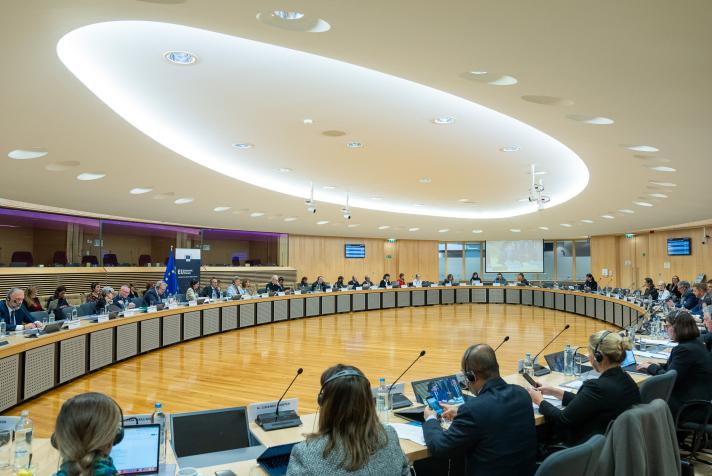
On 7 December Commissioner for Home Affairs, Ylva Johansson hosted the 8th Ministerial Meeting of the EU Internet Forum. The event gathered EU Member states, industry, academia, law enforcement, European agencies and international partners. It addressed the challenges posed by the presence of malicious content and behaviour online, in particular child sexual abuse and terrorist and violent extremist content.
Fighting child sexual abuse
This discussion focused on detection and reporting of child sexual abuse online as it continues to increase at an alarming rate. The rise of online solicitation of children, known as ‘grooming’, livestreaming of child sexual abuse and child ‘self-generated’ content were among the key issues raised.
The Commission emphasised the urgent need to adopt its Regulation on this. The Regulation ensures that companies do their part to prevent child sexual abuse, through measures that focus on child safety by design. Where necessary, it will also mandate companies to detect, report, block and remove child sexual abuse online.
Participants recognised that reporting these abuses in a manner that allows for identification of victims and accountability of perpetrators is instrumental. Companies bear responsibility to support child protection beyond closing or blocking accounts of users suspected of abuse.
Addressing violent extremist and terrorist content online
The recent terrorist attack in Bratislava, which left two people dead, demonstrated once again that the harmful role that the internet can play in the recruitment and radicalisation processes.
Borderline content, also known as harmful but legal content, comes close to infringing on the community guidelines of social media platforms or laws regulating online illegal content. Participants also discussed ways in which industry should enhance transparency on the criteria followed by platforms to recommend targeted content to users through algorithms.
New forms of extremism are increasingly focused on dehumanisation of specific groups, such as the LGBTQ community, women (for example through violent “incels” communities), Jews or migrants, using manipulative tactics and new technologies like immersive and virtual reality. Content is often spread in a decentralised manner across very different platforms (big and small). Some of them are not always willing or capable to take measures to moderate harmful content. The EU Internet Forum is supporting industry with some tools and guidance for content moderation.
Background
The EU Internet Forum (EUIF) was launched in 2015 by the European Commission to address the misuse of the internet by malicious actors as one of the key commitments made in the European Agenda on Security. As of 2019, the Forum also addresses child sexual abuse online and is now starting to look at the use of the internet for drug traffic and trafficking of human beings at technical level.
The main strands of action of the EUIF are:
- Reducing accessibility to terrorist and violent extremist online content.
- Increasing effective counter and alternative narratives online.
- Enhancing the fight against child sexual abuse and exploitation online.
In 2022 the EUIF also addressed challenges related to the sale of drugs and online and addressing trafficking of human beings online.
For More Information
Web-stream of the opening remarks delivered by Commissioner for Home Affairs Ylva Johansson and Minister of Interior of Czech Republic and EU Council Presidency Vít Rakušan.
Commissioner Johansson’s Speech
EU Internet Forum (EUIF)
Details
- Publication date
- 8 December 2022
- Author
- Directorate-General for Migration and Home Affairs

